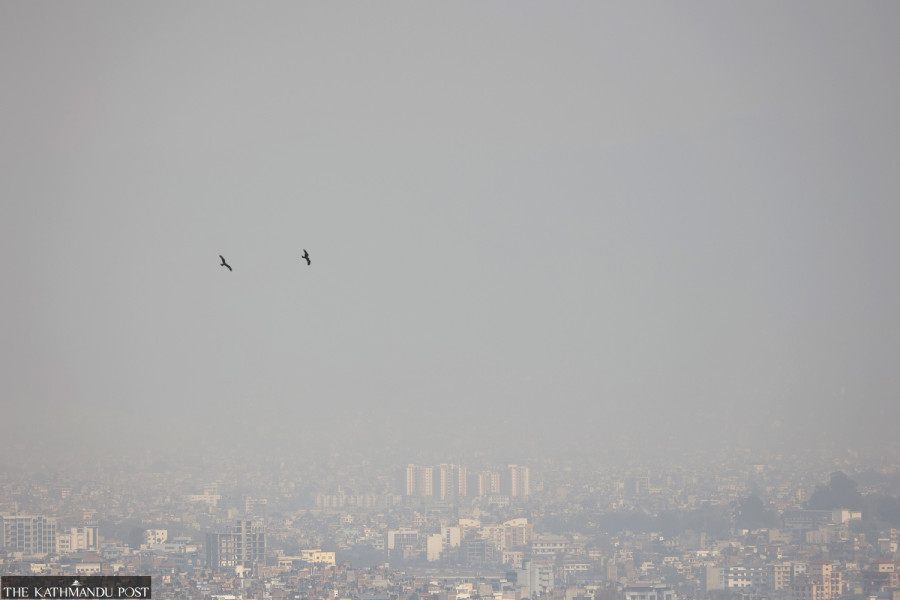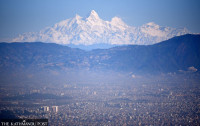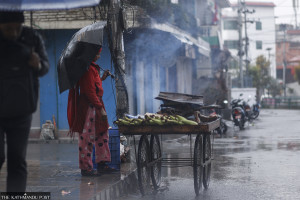Climate & Environment
Deteriorating air quality in several South Asian nations including Nepal concerning: ICIMOD
The organisation urges all stakeholders to build a coalition to drive action on clean air.
Post Report
The International Centre for Integrated Mountain Development (ICIMOD) has expressed concern over the deteriorating air quality in several South Asian nations including Nepal.
Issuing a statement on Wednesday, the organisation pointed out the recent data on the hazardous levels of particulate matter (PM) that pose a severe risk to human health.
“In Kathmandu, Nepal’s capital, PM2.5 levels exceeded 205 µg/m3 on April 11, 2023, with PM10 levels reaching a staggering 430 µg/m3 on April 13, 2023,” the statement reads. “These alarming data points highlight the urgent need for action to address this critical issue.”
Nepal’s air quality has been deteriorating of late with capital Kathmandu earning the notoriety of the world’s most polluted city on Saturday. Smoke and haze have covered the Valley for the past couple of weeks as wildfires rage on around the country.
The Valley’s air quality reached very unhealthy levels on Saturday at 9:45 am, with the Air Quality Index (AQI) reading 244.
Very unhealthy air quality means health warnings of emergency conditions and the entire population is more likely to be affected whereas hazardous levels call for a health alert and everyone may experience serious health effects.
The Meteorological Forecasting Division of the Department of Hydrology and Meteorology said massive forest fires throughout the country are responsible for the smoke and haze in the country. Visibility in the Valley declined to 1,500 metres on Saturday morning, affecting several domestic flights and in the afternoon, the Valley’s visibility had increased to four kilometres.
In recent weeks, along with the rise in serious cases of Covid-19, the number of patients suffering from respiratory illness has risen significantly. Doctors blame the worsening air quality as the main culprit.
Air pollution is known to cause various respiratory illnesses and since coronavirus primarily affects the lungs, health experts warn that worsening air quality could lead to an increase in hospitalisation and even deaths among the people infected with coronavirus.
Dr Bhupesh Adhikary, a senior air quality specialist at ICIMOD, said that globally, air pollution is responsible for more deaths annually than Covid-19 to date.
“Despite this catastrophic death toll, we aren’t tackling this invisible killer with anything like the same energy,” Adhikary said in a statement. “It’s time we put efforts to improve air quality on a war footing. The good news is that we know what is causing air pollution in our region, and how to make rapid progress to reduce our exposure to pollutants. We urge governments, donors and NGOs to work with us to build a coalition to really drive action on clean air.”
The organisation also pointed out that rising temperatures are causing glaciers in the region to melt at an alarming rate: if global warming exceeds 2°C, it will result in loss of 50 percent of the glaciers in the region, leading to changes in river flows which can have serious consequences for freshwater biodiversity, agriculture, drinking water, and other human needs.
The statement further read, “Black carbon or soot emitted from forest fires and burning crop residues after harvest can accelerate the melting of high mountain glaciers, further contributing to their decline.”




 9.12°C Kathmandu
9.12°C Kathmandu










